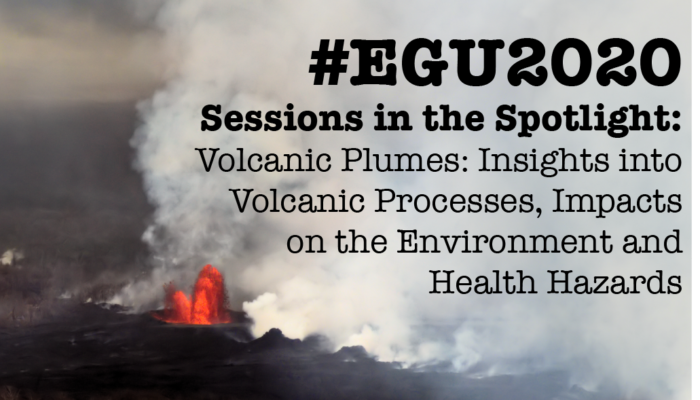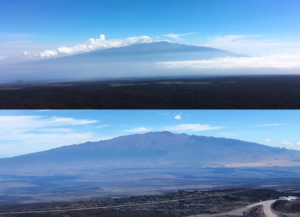

Proximal coupled observations of gas composition and aerosol optical properties of Mount Etna’s plume. Measuring the volcanic plume’s gas and aerosol properties gives indications of volcanic/atmospheric processes and possible health and climatic impacts of the plume. (Photo: courtesy of Andrea Miconi)
Thinking about submitting an abstract to EGU 2020? Fancy a week in beautiful Vienna, the city with the highest concentration of gelaterias outside of Italy*? Like in a Viennese gelateria, the amount of choice confronting you when trying to decide a session can be overwhelming. We are here to help! Every few days we will highlight a different session, helping you to find the one that is best for you. Regarding gelato flavours, we can’t help there…
Today it’s the turn of GMPV10.3: Volcanic Plumes: Insights into Volcanic Processes, Impacts on the Environment and Health Hazards, organised by Pasquale Sellitto (Paris), with Evgenia Ilyinskaya (Leeds), Emily Mason (Cambridge), Tjarda Roberts (Orleans) and Giuseppe Salerno (Etna Observatory).
The convenors say:
Volcanoes release gas effluents and aerosol particles into the atmosphere during eruptive episodes and by quiescent emissions. Volcanic degassing exerts a dominant role in forcing the timing and nature of volcanic unrest and eruptions. Understanding the exsolution processes of gas species dissolved in magma, and measuring their emissions is crucial if we are to characterize eruptive mechanisms and evaluate the subsequent impacts on atmospheric composition, the environment and the biosphere.
View from Mauna Loa to Mauna Kea (Hawai’i), summer 2018, during the Lower East Rift Zone eruption (top), and summer 2019, after this activity (bottom).
Styles of volcanic emissions are broad: from silent exhalations through soils to astonishing eruptive clouds that release gas and particles into the atmosphere, potentially exerting a strong impact on the Earth’s radiation budget and climate over a range of temporal and spatial scales. Through direct exposure and indirect effects, volcanic emissions may influence local-to-regional air quality, seriously affecting the biosphere and environment, and the release of gas from soil may posing long-term health hazards.
Gas emissions are measured and monitored via a range of in-situ and remote sensing techniques, to gain insights into both the subterranean-surface processes and to quantify the extent of their impacts. In addition, modelling of the subsurface and atmospheric processes, as well as laboratory experiments, are fundamental to the interpretation of the field-based and satellite observations.
This session focuses on state of the art and interdisciplinary science concerning all aspects of volcanic degassing and impacts of relevance to the Volcanology, Environmental, Atmospheric and Climate sciences (including regional climate), and Hazard assessment. We invite contributions on all aspects of volcanic plume science, their observation, modelling and impacts.
Good luck, and see you all in the plume-room!
*I was once told this fact, and liked it so much that I never bothered to question it.

